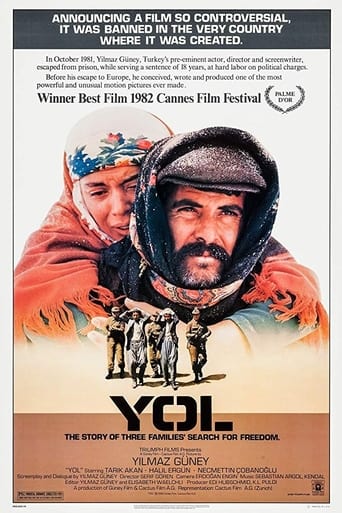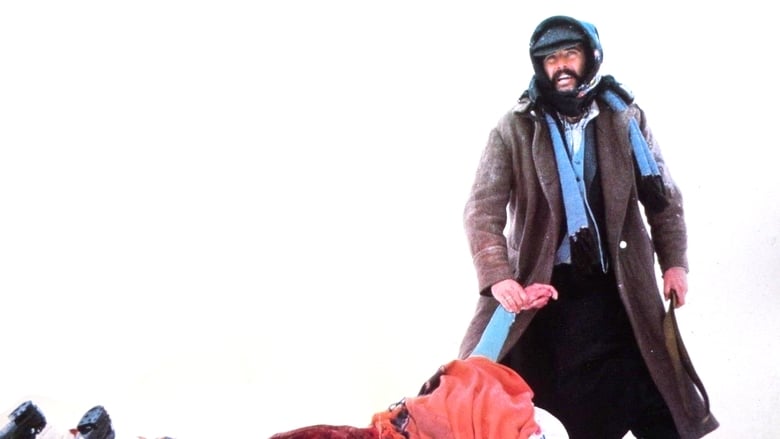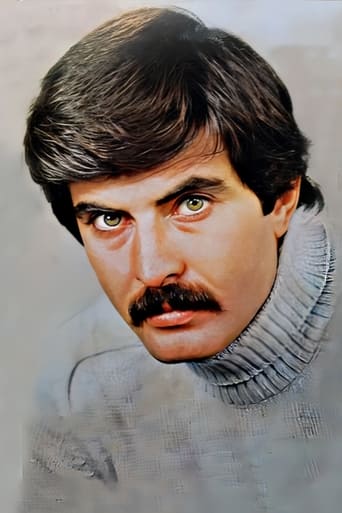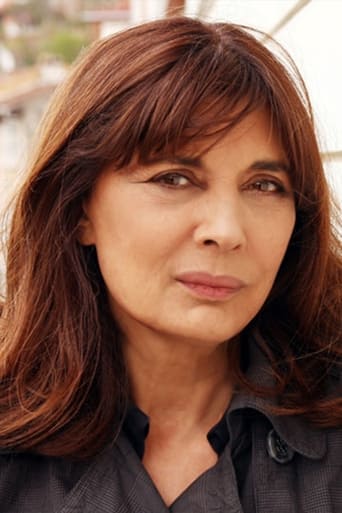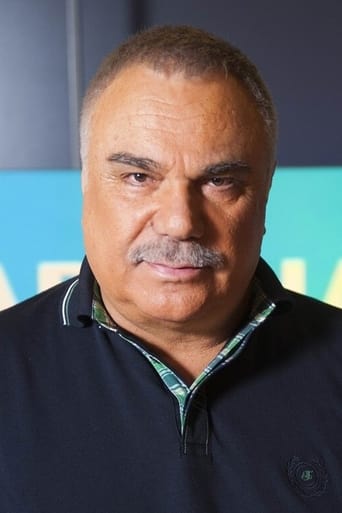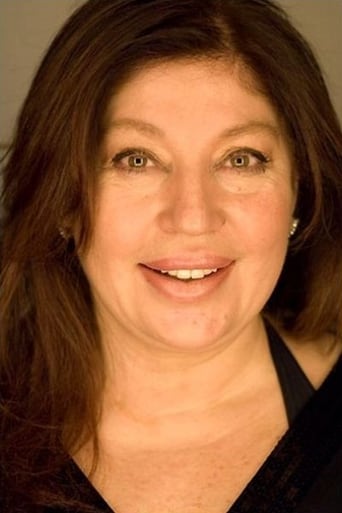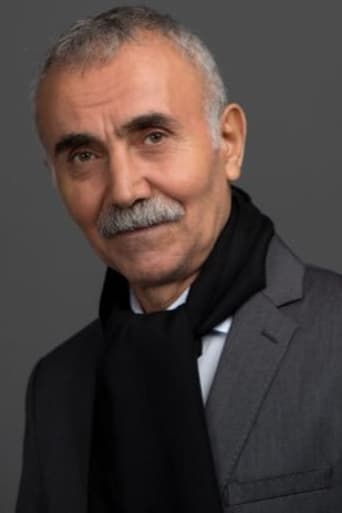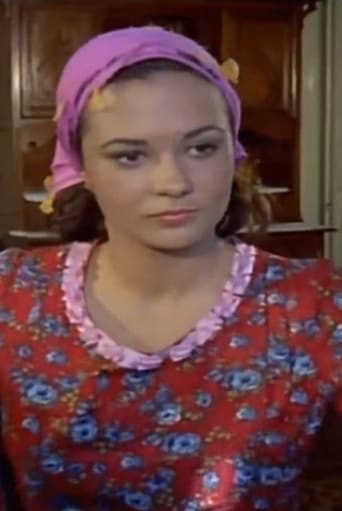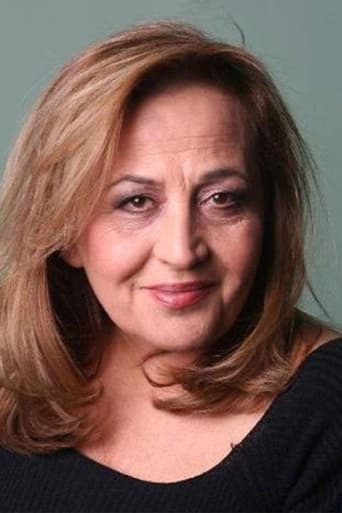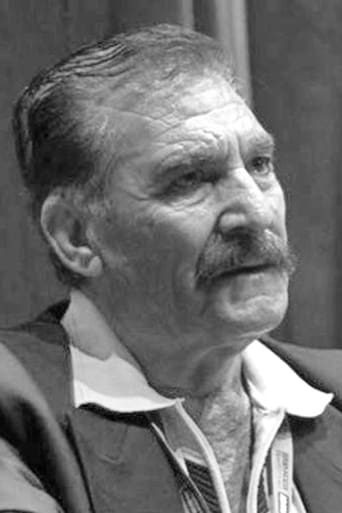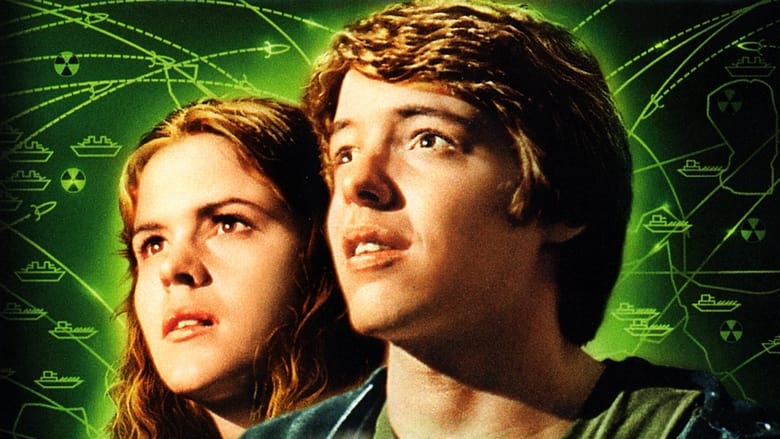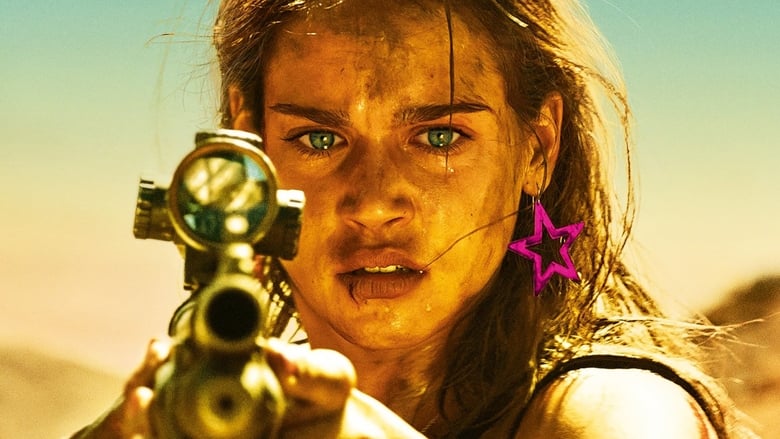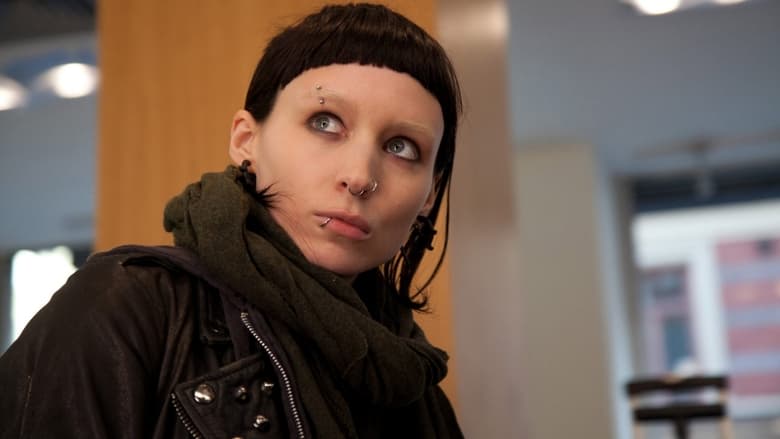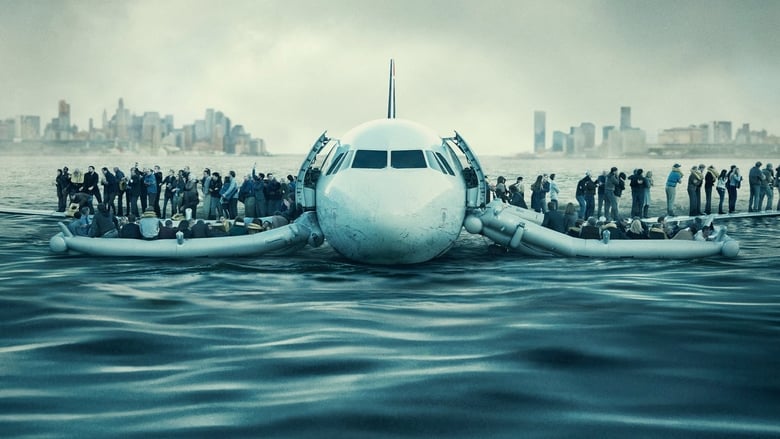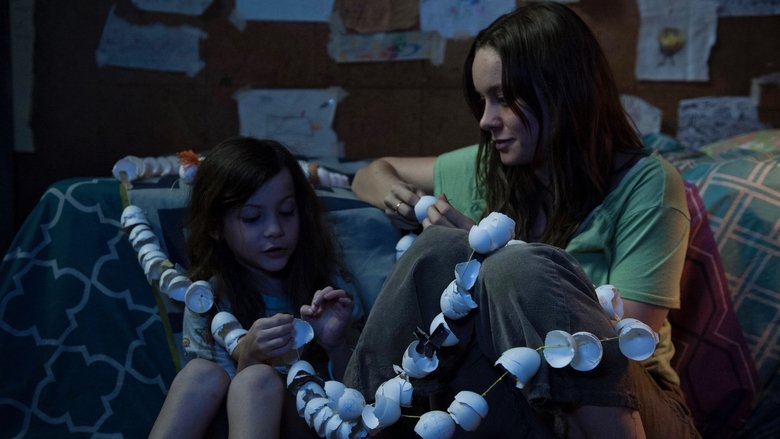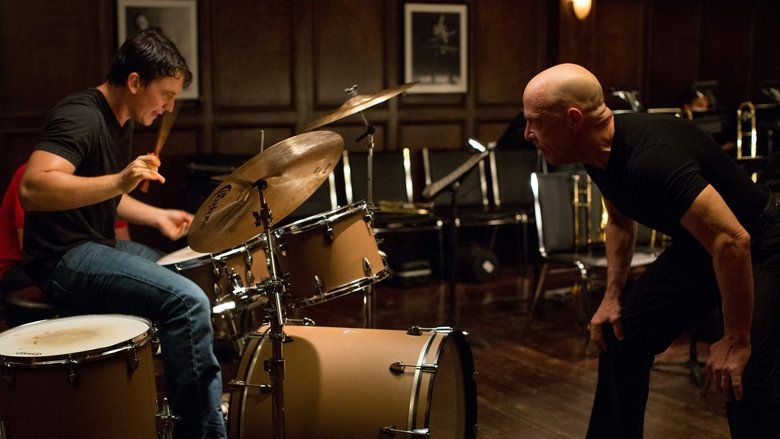When five Kurdish prisoners are granted one week's home leave, they find to their dismay that they face continued oppression outside of prison from their families, the culture, and the government.


Reviews
Here is a very extraordinary Turkish film with many different characters dealing with very different problems at the same time, one of the greatest examples of "cross-cutting" form, and whats more, beautifully done ! i have never seen such a strong edited Turkish film in my life and i seem to be unlikely to find any other, because people tend to watch easy things without too much difficulty. If you want to see pure reality of Turkish rural people in 80s, especially the ones suffer from jails because of murder etc, and if you like to see very interesting scenes from rural life, and finally, if you are crazy for strong edited films, then this one will give you a definite satisfaction ...
In this superb and rather restrained film, the soft, earthy and underexposed visual style juxtaposes the harsh sonic shrieks of a child playing violin, train whistles and screeching breaks, howling wolves in the wind, and a woman screaming for her life in an arctic wasteland. Similarly, the simplicity and passivity of the prisoners is contrasted with the mechanistic social and structural violence surrounding them.There's a strange innocence to the way in which most of the main characters in this film use their fleeting moments of freedom to further imprison themselves in pain, obligation and debt. Of the five stoic, yet gentle prisoners given a week's parole to travel to their respective homes, all of them are transported into different contexts of confinement -- whether emotional, psychological or physical -- full of restrictions and seemingly foregone conclusions.Restrictions on the freedom of movement, sexual urges, existential choice, gender roles and other forms of social behavior creates a kind of emotional numbness in the main characters' (and their wives')already drained dispositions. In light of their inability to negotiate their surroundings, it seems as though many of them willingly succumb to what they might perceive as a pre-determined fate.Looking at just one of the five stories: after arriving home, one of the men is encouraged to kill his adulterous wife in order to save the family reputation while she's held in isolation as a prisoner in a remote mountain village. The roles have now been reversed and the situation grows in complexity to the point where the man's indecisiveness contributes to his wife's death in a vast, frozen landscape. In the film's greatest sequence, the man takes his wife and son back across the arctic emptiness where the carcass of his abandoned horse -- one of the many symbols of freedom and strength in the film-- lies picked apart by birds, wolves and the wind in the very place where his wife will die, providing the perfect image of a man, a woman, a child and a country exposed, ravaged and forsaken in an emotional wasteland.
I am completing a thesis on Turkish cinema. I have seen many Turkish films, and I think this is definitely one of the five best and certainly the best one of its' era though the underrated "Polizei" which "Yol"'s co-director Serif Goren helmed is right up there. "Yol" is amazing for many reasons. I have heard some amazing Hollywood back stories of how films like "MASH" and "Apocalypse Now" were hellish shoots. But, none of them matches what the filmmakers did on this project. "Yol" was secretly filmed, and the entire cast, which included box office icon Tarik Akan risked being blacklisted. The film was subsequently banned in Turkey until 1992, and it was not shown theatrically there until 1999. It is a scathing indictment of political and social oppression in Turkey in the early 1980s. Symbolism is used throughout the film, with birds representing freedom, horses representing virtue, and women representing oppression. Many Westerneners have labeled Yilmaz Guney, Turkey's best known director who envisioned "Yol" from his prison and then while in exile, a champion of feminist ideals. But, if one sees some of his earlier film like "Canli Hedef/Live Target" they might be in for a surprise (that film features an off-camera rape of a 10-year old girl). I like Guney's films but I agree with Serif Goren's assessment that his contributions to "Yol" were completely overlooked. Goren proved to be a capable director in his own right, and his film "10 Kadin/10 Women" is perhaps the essential film for expressing ideals which are sympathetic to feminism- a movement that I sympathize with in terms of Turkey, but am neutral towards in the West. "Yol" also deals with Kurdish suppression. One of the more poignant moments in the film comes when Halil Ergun's character comes to back to his hometown Diyarbakir (in Eastern Turkey) on the train during his prison leave. He comments how strange it is to be back home. The central theme of the film is that the oppressive elements of prison life are evident just as much on the outside. Personally, I think Turkey has made significant progress in recent years. It is a shame that except for Michael Moore, Barbara Kopple, and Tim Robbins, very few American film makers take these kinds of risks that Guney and Goren did with "Yol." In my view, the more recent Turkish film "Distant" has surpassed "Yol" as the best Turkish film ever made, but this is still a magnificent artistic achievement which can be merited as a classic in terms of international cinema.
The artistry of this movie is astonishing in virtually every aspect of its filmmaking. What makes that all the more remarkable is that the footage was all shot by the assistant director in Turkey then taken to Switzerland for Yilmaz Güney (a brilliant writer/director who had to leave Turkey to escape persecution and imprisonment, mostly because of his empathy for the plight of the Kurdish people under Turkish rule) to edit and dub. The cinematography is colorful, rich and varied. The musical sound track is beautiful and well-integrated. The various subplots seem to echo and build on each other. Somehow, while making the grim realities of modern Turkey all too evident, this film also left me with a feeling of the indomitability of those who struggle for freedom.
